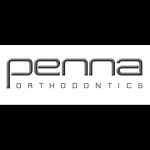Best Oral Hygiene Practices for Seniors
As we age, maintaining good oral hygiene becomes increasingly important. I’ve seen firsthand how essential it is to take care of our teeth and gums as we grow older. For seniors, oral health can significantly impact overall well-being. From maintaining the ability to chew and speak clearly to preventing painful conditions, proper oral hygiene helps us enjoy a better quality of life. In this article, I’ll share the best oral hygiene practices for seniors, along with tips and habits that can help ensure healthy teeth and gums well into our golden years.
Understanding the Importance of Oral Hygiene in Seniors
As we age, changes in our body, including the mouth and teeth, are inevitable. Our enamel naturally wears down, and gums can recede. Additionally, seniors are at a higher risk for dental issues such as tooth decay, gum disease, and dry mouth. While these conditions can be bothersome, they are often preventable with consistent care and the right dental hygiene practices. This means that as a senior, it’s crucial to not only focus on brushing but also to pay attention to other aspects of oral health that may change over time.
There are also systemic health conditions linked to oral health. Poor oral hygiene can increase the risk of heart disease, diabetes, and even respiratory infections. With so much at stake, adopting the right oral hygiene routine can help keep your mouth, teeth, and body in optimal condition.
Key Oral Hygiene Practices Every Senior Should Follow
Having a solid routine for maintaining oral health is essential. From brushing to flossing and regular check-ups, there are several steps that can make a real difference in preventing dental issues as we age. Here are the key practices I recommend for seniors to keep their oral hygiene in top shape:
1. Brush Your Teeth Twice a Day
Brushing is the foundation of any good oral hygiene routine, and it’s especially crucial for seniors. I’ve learned that brushing twice a day with fluoride toothpaste helps remove plaque and prevent cavities. Choose a soft-bristled toothbrush to protect sensitive gums and enamel. Electric toothbrushes are an excellent choice for seniors, as they often require less effort and can provide a more thorough clean than manual brushing. Don’t forget to replace your toothbrush every three to four months—or sooner if the bristles become frayed!
2. Use Fluoride Toothpaste
Fluoride toothpaste is one of the most effective ways to prevent tooth decay, which becomes more common in older adults. Fluoride strengthens enamel and helps fight cavities. Seniors should especially opt for toothpaste that is specifically designed for their needs, as these often contain additional elements like desensitizing agents for those with sensitive teeth.
3. Floss Daily
Flossing is often overlooked, but it plays a crucial role in oral hygiene. Plaque can build up between teeth where toothbrushes can't reach, leading to gum disease and decay. For seniors, I recommend flossing at least once a day. If traditional flossing is difficult, there are alternatives like floss picks, water flossers, or soft interdental brushes that can be easier to handle. Keeping the spaces between your teeth clean is just as important as brushing.
4. Use Mouthwash
Incorporating mouthwash into your daily routine can help reduce plaque, fight bad breath, and improve overall oral hygiene. I prefer mouthwashes that contain antibacterial agents and fluoride. Mouthwash can be particularly beneficial for seniors who may experience dry mouth, as it can provide additional moisture and protect against tooth decay.
5. Stay Hydrated
Dry mouth is a common issue for seniors, especially those who take certain medications. It occurs when there isn’t enough saliva in the mouth to keep it moist, which can lead to a higher risk of cavities and gum disease. Drinking plenty of water throughout the day can help alleviate dry mouth. Chewing sugar-free gum or sucking on sugar-free candies can also stimulate saliva production.
6. Eat a Balanced Diet
Diet plays a crucial role in oral health, and I’ve learned that it’s important to eat foods rich in vitamins and minerals, such as calcium and vitamin D, to keep teeth strong. Fresh fruits and vegetables, whole grains, and lean proteins should be part of every meal. It’s also wise to limit sugary snacks and drinks, as these can contribute to tooth decay. If you’re not sure which foods are best for your teeth, a visit to the dentist can provide personalized advice based on your needs.
Regular Dental Visits: Why They Matter More Than Ever
For seniors, regular visits to the dentist are absolutely essential. In fact, I would say that it’s even more important as we age. Regular check-ups allow your dentist to spot potential problems early, preventing issues from worsening. Dentists can also provide professional cleanings, which are more thorough than at-home brushing and flossing. I recommend scheduling a visit to the dentist at least once every six months—or more often if you have specific oral health concerns.
Special Considerations for Seniors with Dentures or Bridges
If you wear dentures, partial dentures, or dental bridges, maintaining good oral hygiene is just as crucial. It’s easy to think that you don’t need to worry about brushing your teeth when you wear dentures, but this isn’t the case. Dentures must be cleaned daily to remove food particles and prevent bacterial growth. Use a soft-bristled toothbrush or a special denture brush and avoid using toothpaste, as it can scratch the surface of your dentures.
For those who wear bridges, be sure to clean under the bridge and around the surrounding teeth. Special tools like floss threaders can help you floss in areas that are difficult to reach. Regular dental visits are essential to ensure that dentures or bridges are in good condition and functioning properly.
Dealing with Age-Related Oral Health Issues
As we age, certain oral health issues become more common. One of these is gum recession, where the gum tissue wears away from the teeth. This can expose the roots of the teeth, making them more sensitive and prone to decay. If you notice your gums receding or feel increased sensitivity, be sure to talk to your dentist. There are treatments available that can help restore your gum health.
Another issue many seniors face is tooth sensitivity. This can happen due to enamel wear, gum recession, or certain medical conditions. If you experience sensitivity when eating hot or cold foods, your dentist can recommend toothpaste or treatments to help alleviate discomfort.
Finally, seniors are at higher risk for conditions like dry mouth, which can make it harder to speak, eat, and swallow. If dry mouth is a persistent issue, consult your dentist for solutions. Your dentist may recommend saliva substitutes or other products to relieve the discomfort associated with dry mouth.







 Smith Smile Orthodontics4.0 (61 review)
Smith Smile Orthodontics4.0 (61 review) Growing Smiles of Englewood5.0 (213 review)
Growing Smiles of Englewood5.0 (213 review) Penna Orthodontics4.0 (33 review)
Penna Orthodontics4.0 (33 review) Paul Ching DDS, Inc4.0 (23 review)
Paul Ching DDS, Inc4.0 (23 review) Dr. Nick Agpalo, DMD4.0 (11 review)
Dr. Nick Agpalo, DMD4.0 (11 review) Children's Dental FunZone - Pediatric Dentist & Orthodontist - Reseda4.0 (1371 review)
Children's Dental FunZone - Pediatric Dentist & Orthodontist - Reseda4.0 (1371 review) The Importance of Oral Health Education During Pregnancy for a Healthy Pregnancy
The Importance of Oral Health Education During Pregnancy for a Healthy Pregnancy Best Tips for Brushing Your Teeth Properly for Healthy Gums: Essential Techniques for Oral Health
Best Tips for Brushing Your Teeth Properly for Healthy Gums: Essential Techniques for Oral Health Why Skipping Dental Checkups Can Lead to Bigger Oral Health Problems
Why Skipping Dental Checkups Can Lead to Bigger Oral Health Problems Advantages of Porcelain Dental Restorations
Advantages of Porcelain Dental Restorations How Can Diabetes Cause Tooth and Gum Problems? Preventing and Managing Oral Health Issues
How Can Diabetes Cause Tooth and Gum Problems? Preventing and Managing Oral Health Issues Healthy Habits for Promoting Good Oral Health and Hygiene: Tips for a Healthy Smile
Healthy Habits for Promoting Good Oral Health and Hygiene: Tips for a Healthy Smile